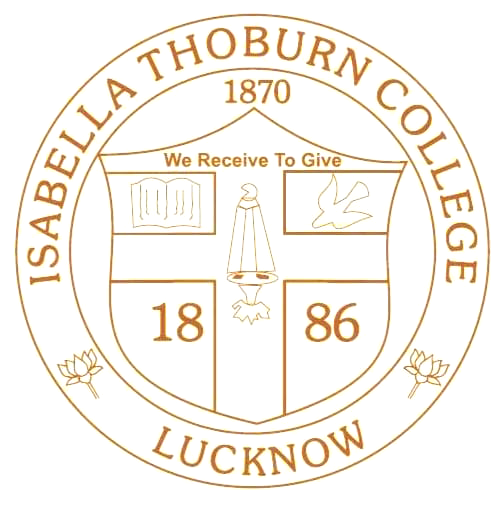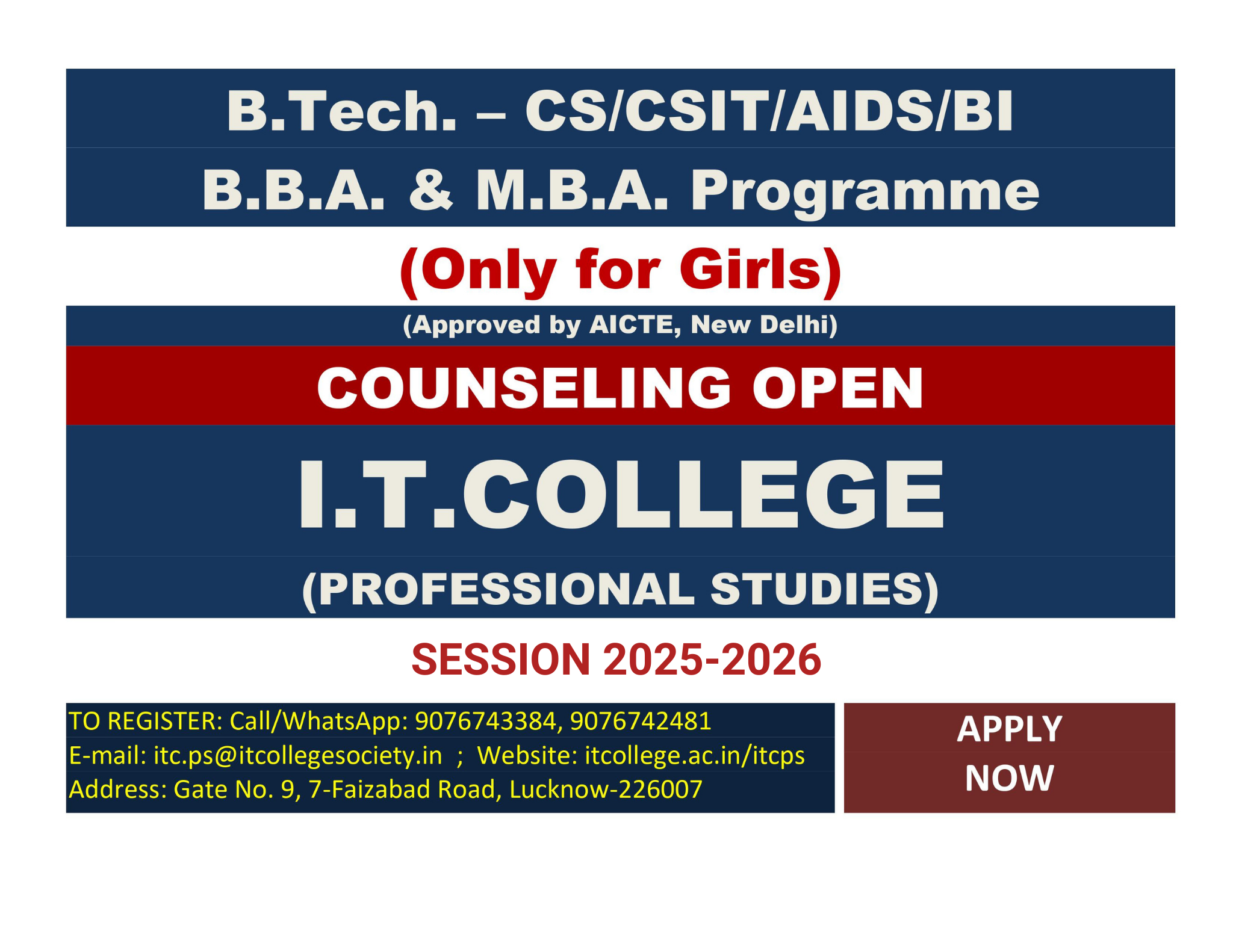Approved by All India Council for Technical Education (AICTE Permanent ID – 1-3394549541) and affiliated to Dr. A.P.J. Abdul Kalam Technical University (AKTU College Code – 849)
Teaching – Learning
Teaching-Learning Process at Isabella Thoburn College (Professional Studies), Lucknow
At Isabella Thoburn College (IT College), we are committed to providing a dynamic and enriching teaching-learning process that equips our students with the knowledge, skills, and competencies needed for success in their chosen professional fields. Our approach to education is centered around fostering intellectual curiosity, critical thinking, and practical application of learning. Here’s an overview of our comprehensive teaching-learning process:
(1) Curriculum Excellence:
- (i) Our curriculum for professional studies programs is meticulously designed to align with industry standards, regulatory requirements, and emerging trends.
- (ii) We prioritize interdisciplinary approaches, practical experiences, and skill development to ensure our students are well-prepared for the challenges of the
modern workplace.
(2) Faculty Development:
- (i) Our faculty members undergo regular training sessions and workshops to enhance their teaching methodologies, pedagogical techniques, and subject matter expertise.
- (ii) We encourage our faculty to engage in ongoing professional development activities, including conferences, research, and collaboration with industry experts.
(3) Student-Centric Approach:
- (i) We adopt a student-centric approach that emphasizes active learning, critical thinking, and problem-solving skills.
- (ii) Personalized support and mentoring are provided to each student to facilitate their academic and personal growth.
- (iii) Our students have access to internships, industry projects, and experiential learning opportunities to apply their classroom knowledge in real-world settings.
(4) Integration of Technology:
- (i) Technology is seamlessly integrated into our teaching-learning process through the use of Learning Management Systems (LMS), multimedia resources, and online collaboration tools.
- (ii) We leverage educational software and applications to enhance engagement, assessment, and feedback mechanisms, ensuring a dynamic learning experience for our students.
(5) Assessment and Feedback:
- (i) We employ a variety of assessment methods, including quizzes, assignments, projects, presentations, and examinations, to evaluate student learning outcomes.
- (ii) Timely and constructive feedback is provided to students to help them understand their strengths and areas for improvement, fostering a culture of continuous growth and development.
(6) Diversity and Inclusivity:
- (i) We are committed to creating an inclusive learning environment that respects and celebrates diversity in all its forms.
- (ii) Support services and accommodations are available for students with diverse learning needs, ensuring equitable access to education for everyone.
- (iii) Support services and accommodations are available for students with diverse learning needs, ensuring equitable access to education for everyone.
(7) Continuous Improvement:
- (i) We have established mechanisms for continuous evaluation and improvement of our teaching-learning process.
- (ii) Feedback from students, faculty, alumni, and employers is solicited regularly to identify areas for enhancement and innovation.
- (iii) Evidence-based practices and data-driven decision-making guide our efforts to continuously improve the quality and effectiveness of our educational programs.
(8) Community Engagement:
- (i) We encourage our students and faculty to actively engage with the local community through service-learning projects, outreach initiatives, and partnerships with industry stakeholders.
- (ii) By integrating community-oriented activities into our curriculum, we instill a sense of social responsibility and civic engagement in our students, preparing them to be responsible global citizens.




